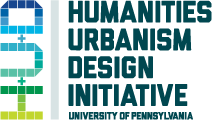Coursework
HIST 234: Urbanization and Its Discontents
Spring 2017
Description:
Urbanization emerged as the subject of political debate and artistic intervention alongside the formation of a predominantly industrial world-economy in the 19th century. Across Europe, America, and the colonized world, artists, designers, and theorists sought to alter the processes of urbanization and imagine alternatives to metropolitan society. During decolonization and the Cold War, urban discourse and practice increasingly focused on the management of scarce resources, and on the ethics of centralizing urban managerial authority in the hands of a few experts. The contemporary global economy, unlike the antecedent world-economy, is remarkably non-urban: financial and political power is no longer exclusively concentrated in a few metropolitan cities, and initiatives to reshape urbanization are now principally conceived of in terms of eco-systems, historic preservation, or human rights. This seminar examines debates that informed the theory and practice of modern city-making. Readings include Charles Baudelaire, W.E.B. Du Bois, M.K. Gandhi, Siegfried Kracauer, Octavio Paz, Huey P. Newton, Jane Jacobs, Saskia Sassen, and Gayatri Chakravorty Spivak. Artistic works and designs analyzed include Nadar’s Egouts de Paris, garden suburbs in Cape Town, Corbusier’s Chandigarh, Doxiadis in Baghdad, the Ford Foundation plan for Calcutta, self-help housing in Lima, Anand Patwardhan’s Humara Shahar, and HBO’s The Wire.
Instructor:
Dr. Shiben Banerji, Mellon Junior Fellow in Humanities, Urbanism and Design
Day and Time:
Thursday, 130-430 pm
Room:
EDUCATION BUILDING 007
